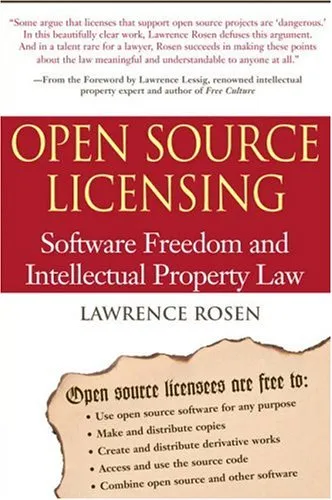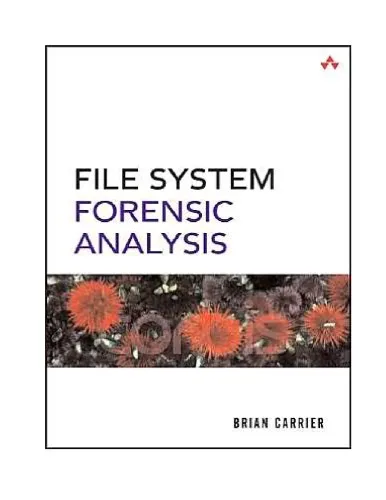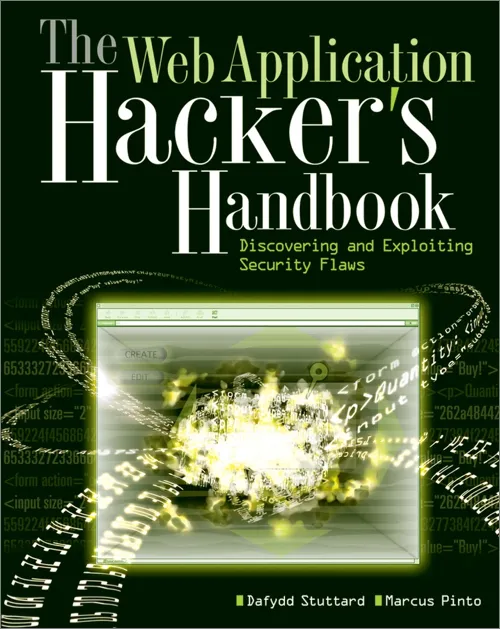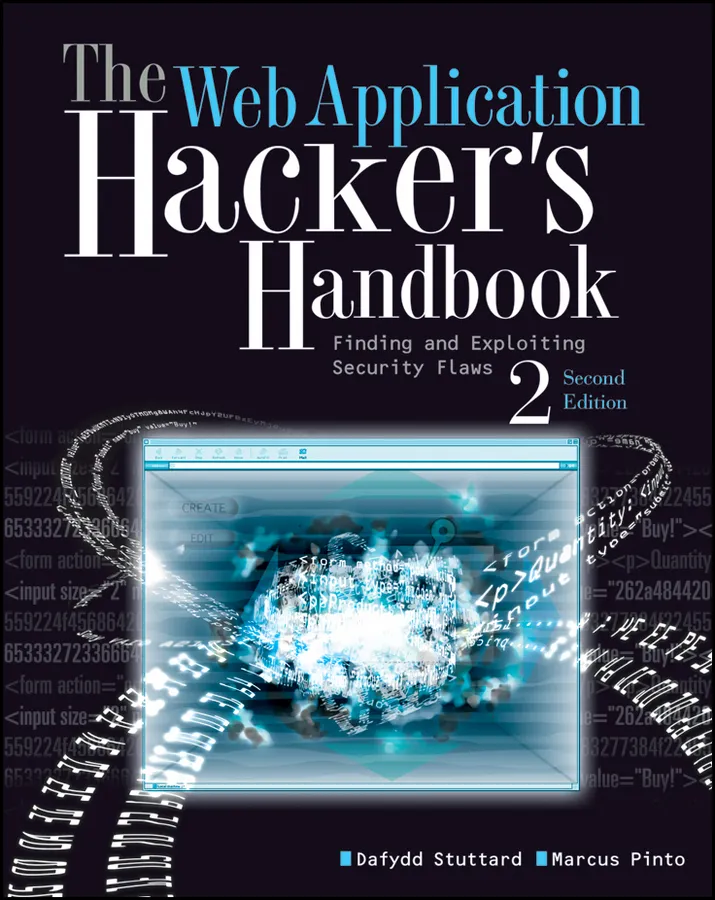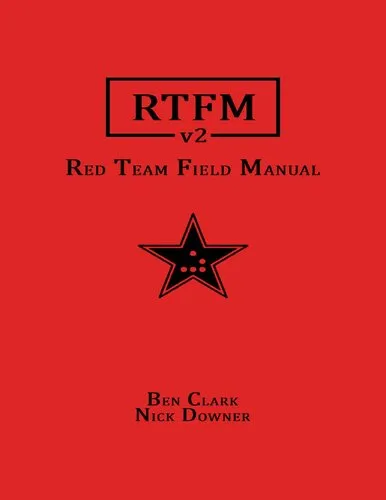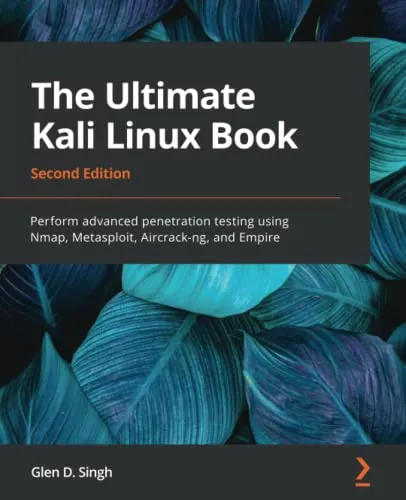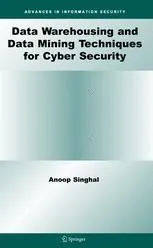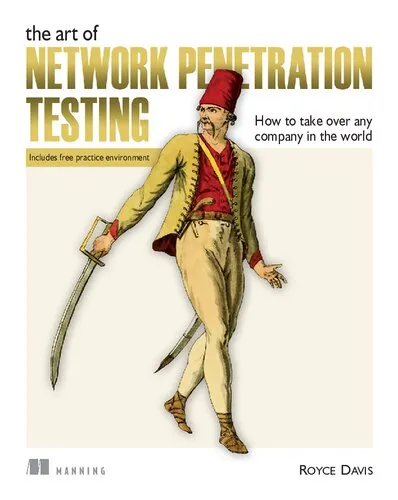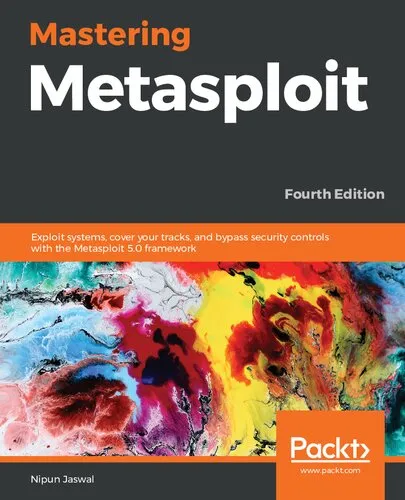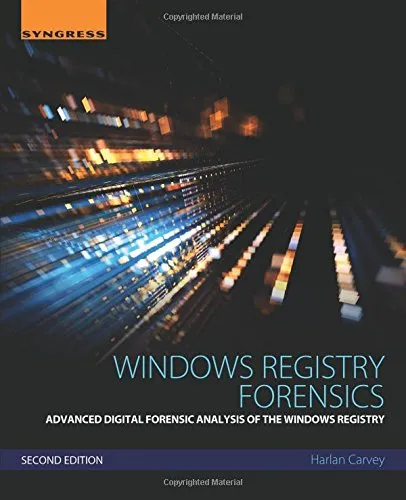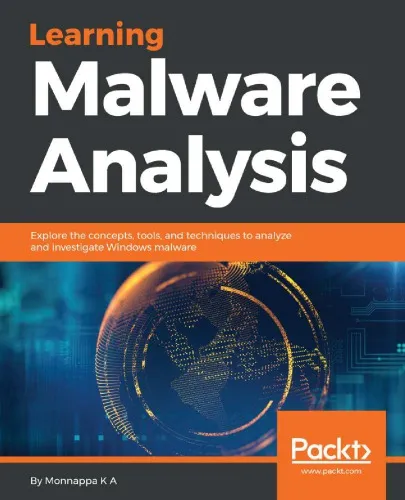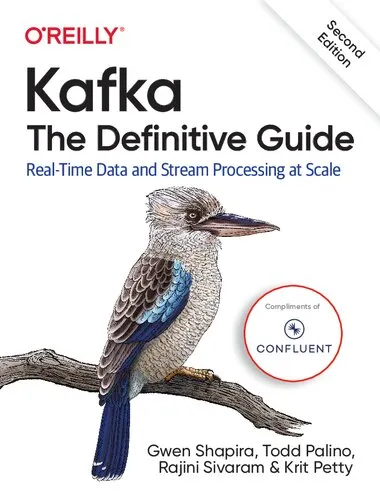Open Source Licensing : Software Freedom and Intellectual Property Law
4.5
Reviews from our users

You Can Ask your questions from this book's AI after Login
Each download or ask from book AI costs 2 points. To earn more free points, please visit the Points Guide Page and complete some valuable actions.Related Refrences:
Introduction to "Open Source Licensing: Software Freedom and Intellectual Property Law"
"Open Source Licensing: Software Freedom and Intellectual Property Law" is a cornerstone resource for understanding the legal, ethical, and practical dimensions of open source software. Written with the clarity and authority of a legal practitioner deeply embedded in the open source movement, this book explores the intersection of software freedom and intellectual property law, providing insights for developers, companies, and legal professionals alike.
The open source movement has transformed how software is developed, shared, and distributed. However, it operates within a complex framework of intellectual property laws that many find bewildering. This book aims to demystify that complexity by offering a clear and thorough examination of open source licensing, its practical applications, and the fundamental principles of software freedom.
Whether you're a software developer seeking to understand the licenses tied to your contributions, a business professional evaluating the risks and opportunities of adopting open source, or a lawyer navigating the complex terrain of intellectual property law, this book is an essential read. It bridges the gap between legal theory and software development, empowering readers to make informed decisions in a rapidly evolving field.
Detailed Summary of the Book
The book begins with an overview of the principles underlying open source software, explaining how it differs fundamentally from proprietary software. It then delves into the legal infrastructure that supports it, breaking down the intricate details of copyright, trademarks, and patents. The author discusses the philosophical underpinnings of software freedom, emphasizing how open source licenses foster innovation, collaboration, and community-driven software projects.
The core of the book explores prominent open source licenses, including the GNU General Public License (GPL), the Apache License, the MIT License, and others. Each license is meticulously analyzed to explain how it works in practical scenarios: what rights and restrictions it grants, how it ensures compliance, and the legal implications of violations.
It also addresses common myths and misconceptions about open source, such as whether open source software is inherently insecure or if its use is legally risky for businesses. Lastly, the book presents real-world case studies and examples to highlight how open source licensing has influenced the technology industry, from small startups to large corporations.
Key Takeaways
- Open source licensing is a legal framework that ensures freedom in software usage and distribution while respecting intellectual property rights.
- Understanding the nuances of major open source licenses is essential for both developers and businesses to ensure compliance and avoid legal disputes.
- The book dispels common misconceptions about open source software, such as claims that it undermines commercial software models.
- Real-world examples highlight the transformative impact of open source on innovation and the technology ecosystem.
- Navigating the balance between software freedom and intellectual property protection is critical for fostering collaboration and technological advancement.
Famous Quotes from the Book
"Licenses are not merely legal documents. They are the contracts that embody our moral rights and obligations to each other within the open source community."
"Freedom in software is not just a philosophical ideal; it is a practical approach to sharing and innovation that has stood the test of time."
"Properly understood, open source is a powerful tool for creating software ecosystems where everyone benefits—developers, businesses, and society as a whole."
Why This Book Matters
In the rapidly advancing field of software development, open source has emerged as a driving force for innovation, collaboration, and creativity. Yet, it also opens the door to unique legal and ethical challenges. "Open Source Licensing: Software Freedom and Intellectual Property Law" matters because it equips readers with the knowledge to navigate these challenges confidently and effectively.
This book is more than an academic overview—it serves as a practical guide for anyone involved in creating, using, or distributing software. It promotes a deeper understanding of how open source fosters technological progress and bridges the gap between developers and legal professionals. By empowering readers to make informed decisions, this book ensures that open source continues to thrive as a model for the future of software development.
Its relevance grows daily as businesses increasingly adopt open source solutions, making comprehension of licensing frameworks essential to avoiding costly legal missteps and fostering long-term success.
Free Direct Download
You Can Download this book after Login
Accessing books through legal platforms and public libraries not only supports the rights of authors and publishers but also contributes to the sustainability of reading culture. Before downloading, please take a moment to consider these options.
Find this book on other platforms:
WorldCat helps you find books in libraries worldwide.
See ratings, reviews, and discussions on Goodreads.
Find and buy rare or used books on AbeBooks.
1339
بازدید4.5
امتیاز0
نظر98%
رضایتReviews:
4.5
Based on 0 users review
Questions & Answers
Ask questions about this book or help others by answering
No questions yet. Be the first to ask!
